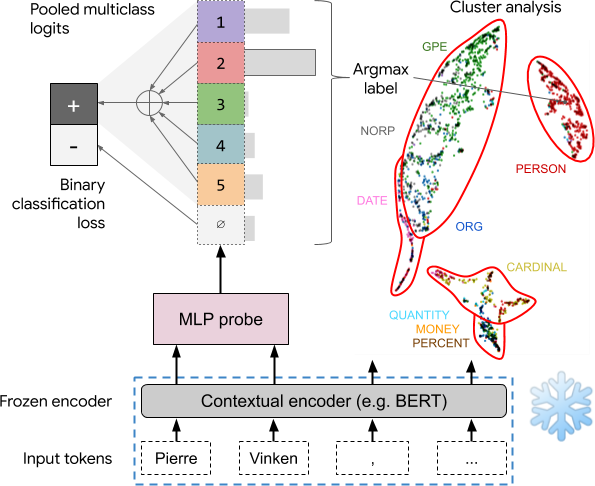Unsupervised Commonsense Question Answering with Self-Talk
Vered Shwartz, Peter West, Ronan Le Bras, Chandra Bhagavatula, Yejin Choi
Semantics: Sentence-level Semantics, Textual Inference and Other areas Long Paper

You can open the pre-recorded video in a separate window.
Abstract:
Natural language understanding involves reading between the lines with implicit background knowledge. Current systems either rely on pre-trained language models as the sole implicit source of world knowledge, or resort to external knowledge bases (KBs) to incorporate additional relevant knowledge. We propose an unsupervised framework based on self-talk as a novel alternative to multiple-choice commonsense tasks. Inspired by inquiry-based discovery learning (Bruner, 1961), our approach inquires language models with a number of information seeking questions such as "what is the definition of..." to discover additional background knowledge. Empirical results demonstrate that the self-talk procedure substantially improves the performance of zero-shot language model baselines on four out of six commonsense benchmarks, and competes with models that obtain knowledge from external KBs. While our approach improves performance on several benchmarks, the self-talk induced knowledge even when leading to correct answers is not always seen as helpful by human judges, raising interesting questions about the inner-workings of pre-trained language models for commonsense reasoning.
NOTE: Video may display a random order of authors.
Correct author list is at the top of this page.
Connected Papers in EMNLP2020
Similar Papers
Inquisitive Question Generation for High Level Text Comprehension
Wei-Jen Ko, Te-yuan Chen, Yiyan Huang, Greg Durrett, Junyi Jessy Li,

What Does My QA Model Know? Devising Controlled Probes using Expert
Kyle Richardson, Ashish Sabharwal,

X-FACTR: Multilingual Factual Knowledge Retrieval from Pretrained Language Models
Zhengbao Jiang, Antonios Anastasopoulos, Jun Araki, Haibo Ding, Graham Neubig,

Asking without Telling: Exploring Latent Ontologies in Contextual Representations
Julian Michael, Jan A. Botha, Ian Tenney,
